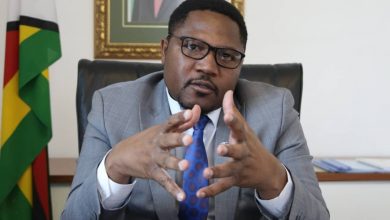
Vulnerable groups are bracing for hard times after authorities re-imposed a nationwide lockdown for 30 days that comes into full effect Tuesday to prevent an alarming surge of coronavirus cases from spiralling out of control.
Zimbabwe’s Vice President and Minister of Health and Child Care, Constantino Chiwenga, announced Saturday that Covid-19 had rapidly resurfaced in the country and that required businesses to close and people to shelter at home as the only solution to curbing the pandemic.
Chiwenga said a sudden surge of coronavirus cases hit Zimbabwe during the festive period with 1 342 Covid-19 confirmed cases and 29 deaths recorded in a week, representing the highest number recorded so far in the country.
Due to this surge, authorities were spurred to announce another strict lockdown that saw non essential formal businesses and informal traders suspended for 30 days starting on January 5, 2021.
The new lockdown would still allow essential sectors to keep operating but residents acknowledged it would have a severe impact on their lives that are already reeling from the effects of the previous restrictions to curb the virus.
“Vulnerable sectors like us are likely to sink further when this new curfew comes into effect because the government said bars, restaurants and nonessential businesses, mostly informal trading will close,” said one resident who is an informal trader.
Another resident, Witness Bhebhe from Trenance in Bulawayo admitted that measures needed to be implemented to stop the Covid-19 virus from spreading but added that substantial financial support was needed especially in Zimbabwe where the economy has been depressed for too long.
“We wonder when we will have a prosperous economy when you also have a virus in the country ,” he said.
Meanwhile, people living with disabilities (PLWDs), who mostly rely on informal trading for survival, have too been dealt another blow due to the suspension of informal trading as part of the country’s second national lockdown restrictions
As a cluster that relies on vending, the lockdown brings more sorrow and a fear that their social economic situation could deteriorate further.
“On January 2, 2021 Zimbabwe was given a new lockdown whereby the informal traders have also been banned from operating for the next 30 days in the plight of the pandemic this move has been accepted with deep sorrow amongst the people with disability cluster,” said prominent disability activist, Nasper Manyau also Executive Director of the Nasper Manyau Initiative in a statement.
“My cluster already has been immensely surviving through vending and only been able to fend for day to day provisions. It is my plea to the communities, the government of Zimbabwe, the formal sector, the religious community landlords to consider extending a hand to those with disabilities.”
Manyau said PLWDs were being shunned due to their need for extra care.
“This is a motion my cluster has had to endure even from birth. However, as a conscious nation our need for accommodation and reduced rentals or Zimbabwean government and anyone who can extend financial muscle to pay our rentals, food packs, sanitisers, masks and all necessary hygiene materials is very crucial,” she said.
People with disabilities, according to Manyau are the most vulnerable during this pandemic, necessitating the need for food support.
“All things being equal, the need for provision of food packs (is important), as my cluster solely depended on daily vending which has been banned. Most of us take medication and with the lack of income, I Nasper Manyau, standing in the gap for my cluster people with disabilities make a clarion call to all who read this statement to reach out and held up be established and survive during this newly enacted lockdown lest we also perish from hunger,” she said.
The disability activist said people with disabilities were marginalised further each time there was a crisis.
“In line with the Sustainable Development Goal 2: Zero Hunger my cluster is taken two steps back each there is a national or global crisis. However, as a collective community, we can make a difference in families that are vulnerable. I hope and pray this statement touches hearts who will reach out and help the Nasper Manyau initiative eradicate hunger despite the turmoil the world is going through,” Manyau said.





